Select Language

Gold prices hit a record high in Asian trade on Wednesday as the U.S. government began shutting down after Congress failed to approve fresh federal funding.
Spot gold hit a record high of $2,875.53 an ounce, while gold futures for December hit a peak of $3,903.45/oz. Spot prices traded slightly below the record, at $3,862.22 by 00:22 ET (04:22 GMT).
US government begins shutting down amid Congress deadlock over spending
A shutdown took effect from midnight, Tuesday (0400 GMT Wednesday) after an eleventh-hour spending bill backed by the Republican party failed to clear a Senate vote, amid persistent resistance from the Democrats.
The yellow metal hit a series of record highs this week amid increasing signs of U.S. political deadlock, which weighed on the dollar and kept traders biased towards safe havens.
Other precious metal prices also clocked hefty gains this week as safe haven demand spilled over from gold, with platinum and silver prices hitting 12 and 14-year highs, respectively.
Spot silver rose 0.9% to $47.0525/oz on Wednesday, while spot platinum fell 0.3% to $1,572.18/oz.
Industrial metals were also sitting on sharp gains this week, but saw some declines on Wednesday. Benchmark copper futures on the London Metal Exchange fell 0.1% to $10,278.10 a ton, while COMEX copper futures fell 0.7% to $4.8450.
Nonfarm payrolls data likely delayed
A U.S. government shutdown is expected to delay a hotly anticipated labor market reading due this week. A prolonged shutdown is also expected to disrupt future U.S. data releases.
Nonfarm payrolls data for September was scheduled to be released on Friday, but may now be delayed due to disruptions in federal agencies.
The print is expected to provide more definitive cues on the labor market– whose cooling was a major motivator of the Federal Reserve’s September rate cut.
Doubts over more rate cuts also crept into markets this week, following a slew of hawkish comments from Fed officials.
Dallas Fed President Lorie Logan flagged heightened caution over future interest rate cuts, stating that the labor market will need to deteriorate further for the central bank to consider more rate cuts.
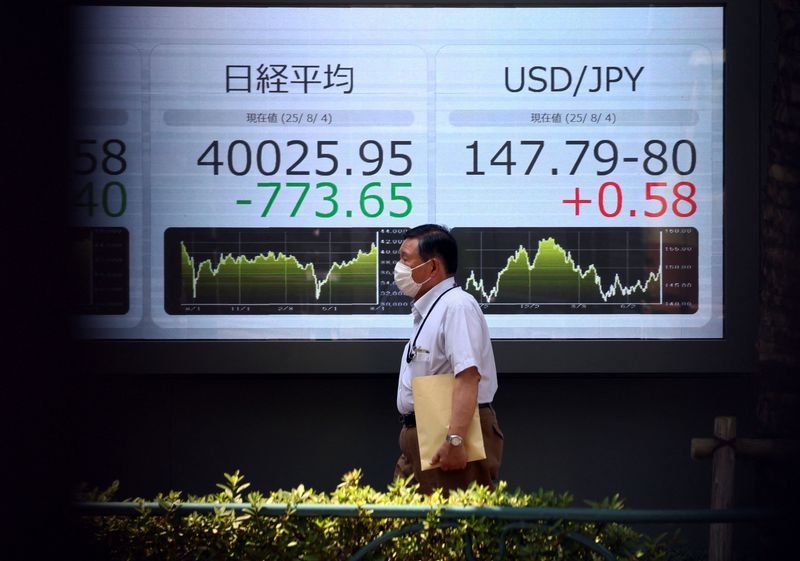
A note of caution took hold of world markets on Tuesday, with the dollar and equities slipping and gold briefly hitting new record highs on concern a U.S. government shutdown could delay key jobs data.
The dollar was broadly weaker, European stocks dipped and U.S. equity futures pointed to a weak open on Wall Street as Washington braced for a fast-approaching government shutdown as Republicans and Democrats appeared unlikely to reach an agreement that would extend funding past a midnight deadline.
A government closure would delay the issue of Friday’s key employment numbers, putting the spotlight on the Labor Department’s JOLTS report on August job openings due later on Tuesday. It could also complicate the outlook for the Federal Reserve, which cut rates earlier this month.
SHUTDOWN COULD LEAVE FED WITHOUT KEY DATA
"We are seeing a bit of concern about how the next few days play out, it seems like both sides are accepting that a shutdown is inevitable," said James Rossiter, head of global macro strategy at TD Securities in London.
"The worry here is that if there is a shutdown, it could be long and if we don’t get Friday’s jobs report or the next CPI number, where does the Fed sit?" he said, referring to U.S. inflation data.
The pan-European STOXX 600 index was last down around 0.1%, while Japan’s Nikkei closed down 0.25%. MSCI’s broadest index of Asia-Pacific shares outside Japan, however, rose almost 0.5%, poised for a gain of over 5% this month.
China’s blue-chip CSI300 Index also rose almost 0.5%, set for a fifth straight month of gains in its longest such streak since October 2017.
With U.S. stocks looking set to end September more than 3% higher and European shares up almost 1% this month, overall sentiment towards equities remained upbeat.
"We’ve actually just decided to increase our weightings in equities further," said Shaniel Ramjee, co-head of multi-asset at Pictet Asset Management.
"The earnings picture has recovered quite materially at the same time that global central banks are still cutting interest rates and global growth is fine."
Australia’s dollar added to gains after the central bank held policy rates unchanged, as widely expected, and oil prices fell over 1% on prospects for greater production by OPEC+, while China’s manufacturing activity shrank for a sixth month in September.
A STELLAR MONTH FOR GOLD
U.S. shutdown worries added to gold’s stunning rally. The precious metal briefly hit a new record high of $3,820 per ounce before trading lower on the day. Still, it has gained over 10% in September - on track for its biggest monthly percentage gain since July 2020.
Without a deal, a U.S. government shutdown would begin from Wednesday, the same day new U.S. tariffs are set to take effect on heavy trucks, patented drugs and other items.
The White House announced revised tariffs on furniture and cabinets late on Monday that are due to kick in on October 14.
All this left the dollar on the defensive.
The U.S. currency was down 0.4% at 147.98 yen, the euro was up 0.1% at $1.1742, while the Swiss franc and pound were also a touch firmer against the dollar.
The dollar index was last down 0.1% on the day and set to end September little changed on the month.
The yen could emerge as an outperformer as a hedge to a U.S. government shutdown, ING currency analysts said in a note.
The U.S. JOLTS report is the first of several indicators expected ahead of the September employment report due Friday that is considered key to the Fed’s calculations for the timing of rate cuts.
A protracted government closure could leave the Fed flying blind on the economy when it meets on October 29, however.
Analysts expect JOLTS to show job openings held firm at about 7.18 million in August.
Data released on Tuesday showed China’s purchasing managers’ index rose to 49.8 in September from 49.4 in August, below the 50-mark separating growth from contraction.
It suggested producers are waiting for further stimulus to boost domestic demand, as well as clarity on a U.S. trade deal.
Elsewhere, the Reserve Bank of Australia left its cash rate steady at 3.60%, saying recent data suggested inflation might be higher than forecast in the third quarter and that the economic outlook remained uncertain.
In Europe, data showing inflation rising in four key German states had limited market impact.
Oil stayed weaker due to an anticipated production increase by OPEC+ and the resumption of oil exports from Iraq’s Kurdistan region. Brent slipped 1.25% to $67.11 per barrel and U.S. crude fell 1.25 % to $62.66.
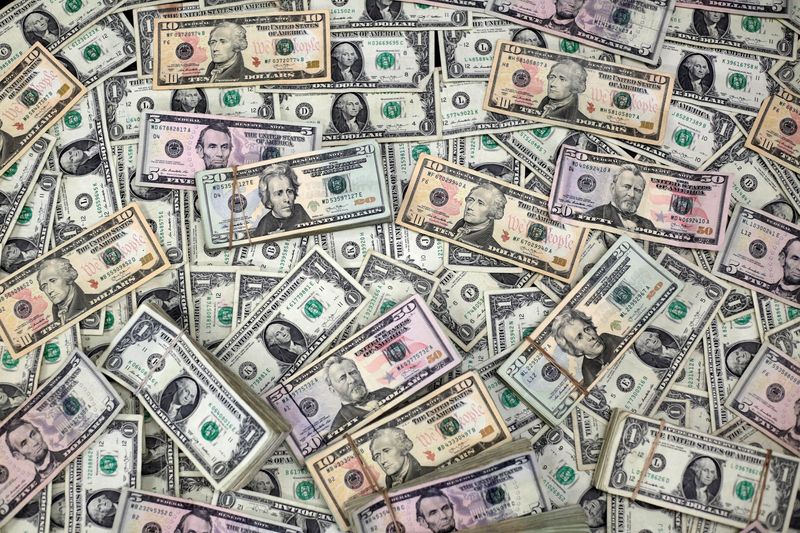
The U.S. dollar weakened on Monday, as investors eyed the prospect of a federal government shutdown as well as a slate of fresh U.S. economic data points this week.
By 05:35 ET (09:35 GMT), the U.S. dollar index, which tracks the greenback against a basket of currency peers, had fallen by 0.2% to 97.92.
Attention is turning to the unveiling of September’s nonfarm payrolls report on Friday, which could provide a glimpse into the state of the American labor market.
Supporting a cooling jobs picture has been a major focus for Federal Reserve policymakers. When the central bank slashed interest rates by 25 basis points earlier this month, officials widely suggested that a need to prioritize the slowing employment situation over signs of sticky inflation.
A collection of rate projections from the Fed also showed that many members are anticipating further drawdowns before the end of the year. In theory, cutting rates can spur on investment and hiring, albeit at the risk of driving up prices.
Economists are anticipating that the U.S. added 51,000 roles this month, compared to 22,000 in August. The unemployment rate, meanwhile, is tipped to equal August’s level of 4.3%.
Observers have predicted that, given elevated inflation data, a strong jobs report could persuade the Fed to roll out further rate cuts at a more measured pace.
Traders are currently pricing in roughly 40 basis points of Fed easing by the end of 2025, around 25 basis points below the level seen earlier this month. This slight pullback in expectations for Fed rate cuts, helped give lift to the dollar last week.
"A jobs number [less than] 75,000 will probably keep the Fed on track for a [...] cut [at its next meeting on October 29], but something [greater than] 115K with the core PCE just below 3% could spur" Fed Chair Jerome Powell and his colleagues to skip a reduction at the gathering, analysts at Vital Knowledge said in a note.
Yet worries remain that a possible U.S. government shutdown this week may delay the publication of the jobs numbers.
Congressional lawmakers are currently facing an impending deadline to pass a stopgap funding bill before the fiscal year ends on Tuesday. If the federal government would enter its 15th partial shuttering since 1981.
Republicans currently control both chambers of Congress, although the votes of some opposition Democrats would be needed to pass the legislation. However, Democrats have so far rejected a short-term bill, calling for any potential bill to reverse Republican reductions to health care programs.
Leaders from both parties in Congress are due to meet with President Donald Trump -- a Republican -- at the White House on Monday to discuss the matter. Speaking to Reuters over the weekend, Trump said he has "the impression" that Democrats may want to reach an agreement.
Elsewhere, analysts are keeping tabs on a legal battle over the possible dismissal of Fed Governor Lisa Cook by the Trump administration, which have exacerbated concerns over the independence of the central bank.
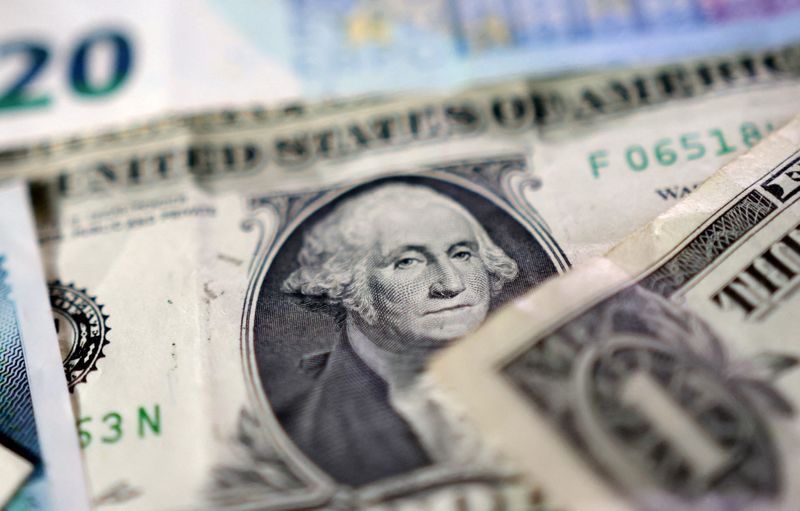
MUMBAI/TOKYO (Reuters) -The dollar was steady against the euro and sterling on Friday, holding on to steep gains as investors awaited U.S. consumer spending data after better-than-expected growth numbers dampened expectations of further easing by the Federal Reserve this year.
The euro was hovering near a three-week low at $1.1667 while sterling was flat at $1.3351 after touching a near two-month trough on Thursday.
The yen traded at an eight-week low following a new raft of tariffs announced by U.S. President Donald Trump which included a 100% levy on branded drugs, 25% on heavy-duty trucks, and 50% on kitchen cabinets.
MUTED CURRENCY REACTION DUE TO EXEMPTION HOPES
Shares in Europe’s biggest pharma companies were steady after an early dip, with analysts pointing out that exemptions for firms that set up manufacturing facilities in the U.S. meant that regional giants such as Roche and Novo Nordisk are likely to see a muted impact.
"It’s not surprising to see the muted reaction in currencies as markets have been through multiple rounds of this already and are inclined to see the announcements more as a negotiating position being set up by the White House," said Nick Rees, head of macro research at Monex Europe.
Also, the bilateral trade deals that various countries have struck with the Trump administration have not been as disruptive as initially feared, and this has further assuaged markets’ sensitivity, he said.
The dollar index, which measures the greenback against major currencies, was poised for its biggest weekly advance in two months after figures on U.S. economic growth, unemployment claims, durable goods and wholesale inventories all beat expectations on Thursday.
FED RATE CUT BETS TRIMMED
Attention now turns to the release of U.S. consumer spending and PCE inflation data later on Friday for further signals on how urgently the economy needs additional rate cuts from the Fed.
Markets are now pricing in about a 14.5% chance of the Fed keeping rates unchanged next month, up slightly from 8.1% a day earlier, according to the CME FedWatch Tool. The cumulative policy easing priced in by the end of the year has also dipped below 40 basis points.
The Commerce Department reported on Thursday that U.S. gross domestic product rose by an upwardly revised rate of 3.8% from April through June, higher than the 3.3% initially reported. Economists polled by Reuters did not expect the rate to be revised.
Friday’s personal consumption expenditures (PCE) price index, the Fed’s preferred inflation measure, is expected to show a 0.3% month-on-month increase for August and a 2.7% year-on-year rise, according to a Reuters poll.
"We think more good news is needed to keep the dollar going, and we see substantial risks of a correction today after a USD rally that looks slightly overdone," Francesco Pesole, FX strategist at ING said in a note.
While the euro could rise above $1.17 in the near term, a rise in market sensitivity to geopolitical tension in Europe alongside continued strength in U.S. economic data presents a risk, the note said.
Elsewhere, data showed that core inflation in September for Tokyo stayed well above the Bank of Japan’s central 2% target, keeping alive expectations of a near-term interest rate hike.

Gold prices held largely steady in Asian trade on Thursday after sliding from record highs, as a stronger dollar and cautious Federal Reserve signals weighed on the metal’s appeal.
Spot gold was last up 0.2% at $3,713.42 an ounce by 03:01 ET (07:01 GMT), after retreating from Tuesday’s all-time peak of $3,790.82/oz. U.S. Gold Futures for December edged up 0.1% to $3,773.02.
The yellow metal settled 0.7% lower on Wednesday as the dollar rebounded overnight, making gold more expensive for buyers using other currencies.
Gold slips from near record levels ahead of key US data
Fed Chair Jerome Powell said on Tuesday there was “no risk-free path” for policy, warning of the risks of cutting too quickly or too slowly.
San Francisco Fed President Mary Daly and other officials echoed the cautious tone, underscoring that easing would hinge on incoming data.
Investors are awaiting a string of U.S. economic reports this week, expected to provide clearer signals on whether the central bank will move ahead with further rate cuts this year.
Lower interest rates reduce the opportunity cost of holding non-yielding assets such as bullion, making gold more attractive to investors.
Weekly jobless claims due later on Thursday are expected to come in around 230,000. The government’s second estimate of second-quarter GDP will also be released on Thursday.
The August core Personal Consumption Expenditures (PCE) price index, due Friday, is expected to rise about 2.7% from a year earlier, remaining above the Fed’s 2% target.
Bullion has been constantly reaching fresh peaks, driven by expectations of monetary easing, geopolitical uncertainty and strong central bank purchases.
Other metal markets subdued
Other precious and industrial metals also traded in narrow ranges on Thursday amid broader caution.
Silver Futures edged 0.2% higher to $44.29 per ounce, while Platinum Futures were largely steady at $1,484.35/oz.
Benchmark Copper Futures on the London Metal Exchange slipped 0.5% to $10,313.65 a ton, while U.S. Copper Futures gained 0.4% to $4.85 a pound.
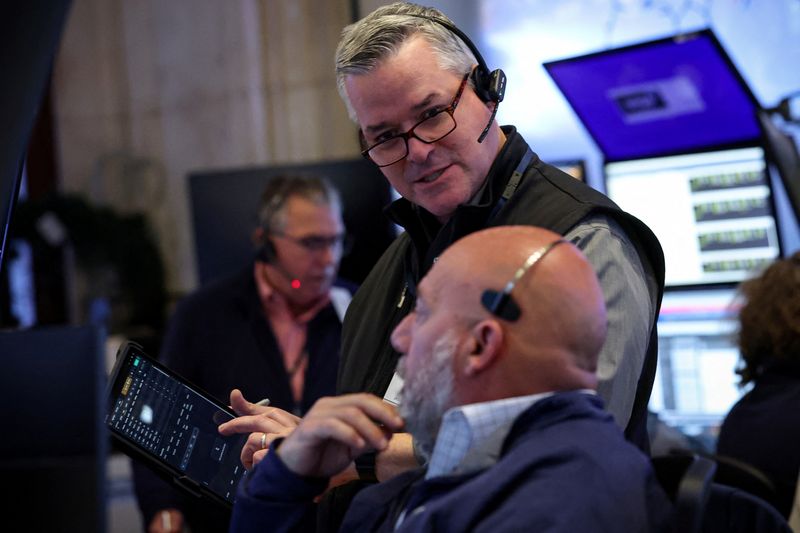
Futures for the S&P 500 and the Nasdaq edged higher on Wednesday as investors assessed cautious commentary from U.S. Federal Reserve Chair Jerome Powell and looked ahead to key economic data later in the week.
While the recent numbers point to a resilient economy, comments from Fed officials have injected some wariness, especially about the labor market. Powell added to the measured tone on Tuesday, noting that asset prices appeared fairly highly valued.
He stopped short of aligning with either camp in the ongoing debate among Fed policymakers, with some pushing for more aggressive cuts to support the jobs market while others urge restraint to avoid reigniting inflation.
Instead, the Fed chair emphasized the delicate balancing act the central bank is faced with to navigate inflation risks while addressing signs of a softening labor market.
At 5.30 a.m. ET, Dow e-minis rose 22 points, or 0.05%, U.S. S&P 500 E-minis gained 11.5 points, or 0.2%, and Nasdaq 100 E-minis added 78.5 points, or 0.3%.
A widely expected 25-basis-point cut last week helped propel equities, but investors are hoping for more easing this year to keep the momentum going.
"The bias is so heavily skewed towards ultra dovishness that any shortcomings in commentary can cause a wobble in sentiment," Daniela Sabin Hathorn, senior market analyst at online trading firm Capital.com, said in a note.
There has also been concern about inflated stock valuations in some sectors. Only 17% of stocks in the benchmark S&P 500 outperformed the index in the last three months, according to data from Charles Schwab, underscoring the narrow breadth powering the rally.
Investors will closely watch the core personal consumption expenditures data, the Fed’s preferred inflation gauge, due to be released later this week. A hotter-than-expected reading could strengthen the case for a more cautious pace of easing, while a softer print might reinforce bets on additional cuts.
Meanwhile, housing market data due on Wednesday could offer insight into consumer demand and builder sentiment, especially as elevated borrowing costs continue to weigh on affordability.
The sector has been pressured for much of the year and any signs of stabilization could influence broader sentiment.
Markets may also take cues from an upcoming speech by Federal Reserve Bank of San Francisco President Mary Daly, who could shed light on how regional Fed officials are interpreting the latest data and policy signals.
In stocks, Lithium Americas’ U.S.-listed shares surged 67% after Reuters reported President Donald Trump’s administration was weighing taking an up to 10% equity stake in the company.
Memory chipmaker Micron Technology’s shares also rose 1.3% before the open after it forecast quarterly revenue above estimates.
Equities have become increasingly central to household wealth, making market performance a key pillar of consumer confidence.
Household exposure to stocks rose to a record 65.8% in the second quarter, higher than their share at the peak of the dotcom bubble, according to Schwab.
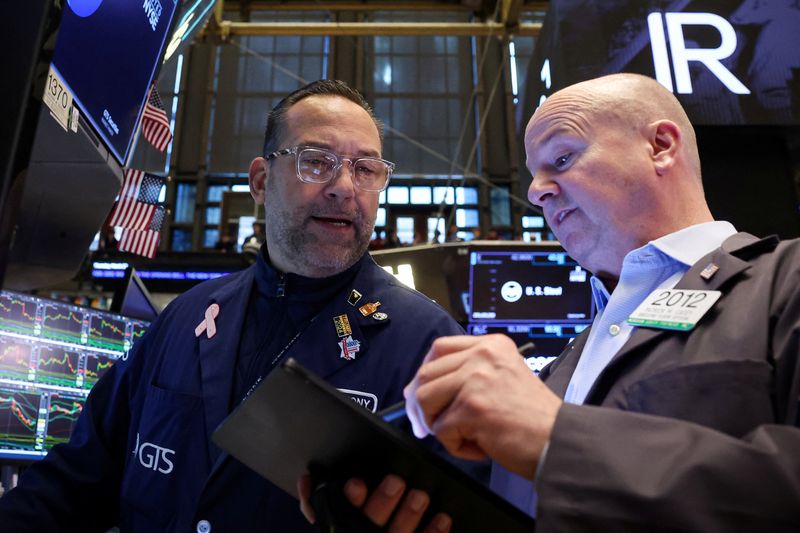
U.S. stock index futures traded in a subdued fashion Tuesday, consolidating after Wall Street clocked a three-day winning streak ahead of an eagerly-awaited speech by Federal Reserve Chair Jerome Powell.
At 05:55 ET (09:55 GMT), Dow Jones Futures gained 85 points, or 0.2%, S&P 500 Futures rose 1 points, or 0.1%, and Nasdaq 100 Futures climbed 9 points, or 0.1%.
The three benchmark indices closed at all-time highs — marking three consecutive winning sessions for the S&P 500 — and recorded fresh intraday records on Monday. This followed the announcement of a $100 billion investment by chip giant Nvidia (NASDAQ:NVDA) in ChatGPT-maker and client OpenAI to help build out data centers.
Powell speech, PMI prints in spotlight
Investors have turned more cautious ahead of a speech by Powell later in the session, with the Fed Chair likely to offer more insight into the central bank’s plans to cut interest rates.
The Fed cut rates by a largely telegraphed 25 basis points last week and flagged at least two more cuts this year, citing weakness in the labor market. But Powell warned that sticky inflation and resilience in jobs could raise questions over further easing.
A number of Fed members warned on Monday that the central bank’s recent cut diminished the need for further easing, but recently-confirmed Fed Governor Stephen Miran on Monday called for aggressive reductions.
Markets are now placing a roughly 90% chance of a quarter-point reduction in the Fed’s target rate from the current range of 4% to 4.25% at the central bank’s next meeting in October, according to CME’s closely-monitored FedWatch Tool. There is also about a 75% chance of another 25-basis point cut at the following gathering in December.
Aside from Fed speakers, attention will home in on flash U.S. business activity figures for September.
Economists have forecast that S&P Global’s composite purchasing managers index for the month will match August’s reading of 54.6. A level above 50 indicates expansion.
Manufacturing sector PMI is tipped to edge down to 52.2 from 53.0, while the gauge of the services industry -- which accounts for much of U.S. output -- is projected to inch lower to 54.0 from 54.5.
Micron set to report quarterly results
In the corporate sector, Micron (NASDAQ:MU) is expected to reveal its latest quarterly results after the closing bell, and is set to offer more insight into the trajectory of the AI boom.
Recent commentary around the maker of advanced memory and storage chips has been widely bullish, driven by hopes that soaring demand conditions and tighter supplies will support solid earnings and sales.
In August, Micron lifted its fiscal fourth-quarter revenue and adjusted profit forecast, citing an anticipated surge in returns from its memory chips used in AI infrastructure.
Elsewhere, Kenvue (NYSE:KVUE) stock soared premarket, rebounding after a record low the day before, even as U.S. President Donald Trump linked its Tylenol drug to autism risk during pregnancy at a White House press conference.
Firefly Aerospace (NASDAQ:FLY) stock slumped on the back of its financial results, the first to come out since the rocket maker’s Nasdaq debut in early August. It posted a wider loss and lower-than-expected revenue in its second quarter.
Crude bounces
Oil prices rose, bouncing from earlier losses after healthy activity data in Europe raised hopes of raised consumption in this important region.
At 05:55 ET, Brent futures gained 0.4% to $66.83 a barrel, and U.S. West Texas Intermediate crude futures rose 0.6% to $62.64 a barrel.
Eurozone business activity grew at its fastest pace in 16 months in September, as the HCOB Flash Eurozone Composite Purchasing Managers’ Index, compiled by S&P Global, edged up to 51.2 in September from 51.0 in August, marking the ninth consecutive month of growth.
That said, both benchmarks are currently suffering a five-session losing streak on concerns of global oversupply.
Iraq’s federal and Kurdish regional governments reached a deal with oil firms to resume crude exports via Turkey on Monday, Reuters reported, potentially allowing exports of about 230,000 barrels per day to resume, having been suspended since March 2023.
In its latest monthly report, the International Energy Agency said world oil supply will rise more rapidly this year and a surplus could expand in 2026 as OPEC+ members increase output and supply from outside the group grows.
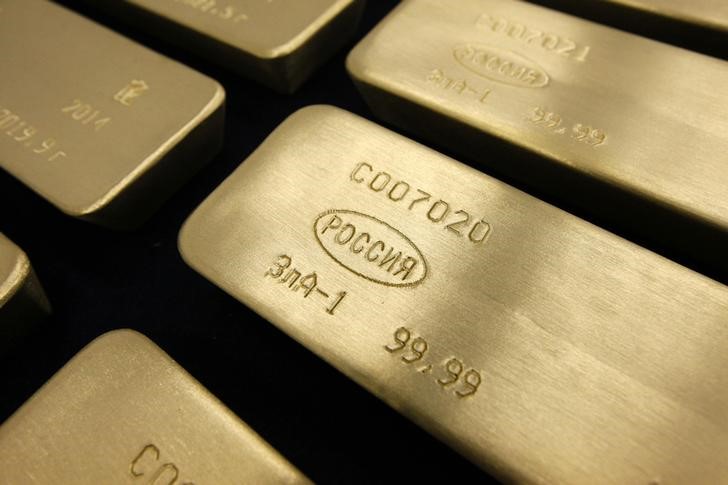
Gold prices advanced in Asian trade on Monday, remaining close to last week’s record highs as the prospect of more U.S. interest rate cuts after the Federal Reserve’s recent move buoyed the outlook for bullion.
Markets remained biased towards bullion before several more key U.S. economic readings this week, including the Fed’s preferred inflation gauge.
But gold was kept off record highs by some resilience in the dollar, which recovered from its weakest levels in over 3-½ years.
Spot gold rose 0.3% to $3,697.70 an ounce, while gold futures rose 0.7% to $3,733.10/oz by 01:33 ET (05:33 GMT). Spot prices hit a peak of $3,707.70/oz last week.
Gold keeps record highs close amid rate cut cheer
Gold’s recent record highs came as the Fed cut interest rates by 25 basis points last week in a widely telegraphed move.
The central bank cited increasing risks to the labor market as a motivator for the cut, and signaled that it will continue to lower rates in the coming months on more signs of labor weakness.
But the Fed still maintained its stance on potential inflationary risks, especially from higher trade tariffs. Markets, however, remained confident that interest rates will fall by at least 50 bps more this year, CME Fedwatch showed.
Lower rates bode well for non-yielding assets such as gold, given that they lower the opportunity cost of investing in the sector. Broader metal prices also advanced after the Fed’s cut.
Spot platinum rose 0.8% to $1,419.90/oz on Monday, while spot silver rose 1.3% to $43.6495/oz.
Among industrial metals, benchmark copper futures on the London Metal Exchange rose 0.1% to $10,001.10 a ton, while COMEX copper futures rose 0.1% to $4.6315 a pound.
US inflation, Fedspeak on tap this week
Focus this week is on a slew of key U.S. economic signals, which are likely to factor into near-term expectations for interest rate cuts.
Several Fed officials are set to speak this week, most notably Fed Chair Jerome Powell on Tuesday.
PCE price index data– the Fed’s preferred inflation gauge– is due on Friday, and is expected to show inflation remaining sticky in August. Core PCE inflation is also expected to remain above the Fed’s 2% annual target.
Other economic prints are also due this week, including preliminary purchasing managers index data for September, as well as a final reading on second-quarter gross domestic product growth.
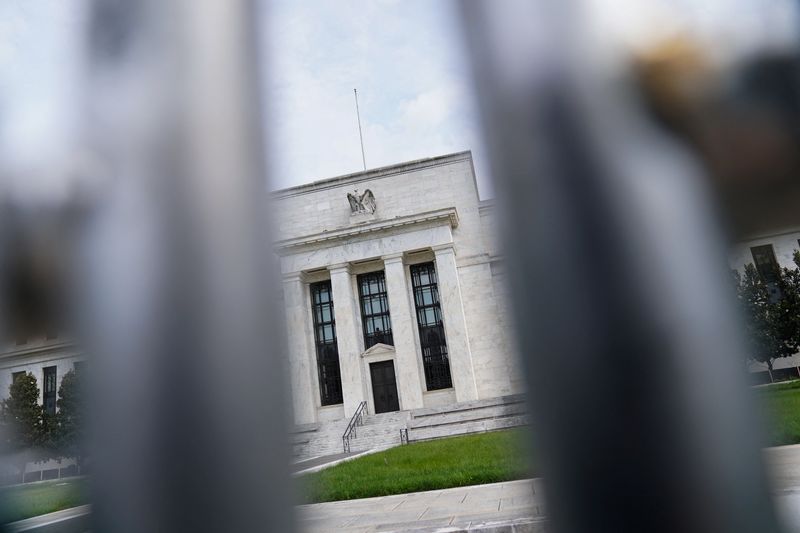
The Federal Reserve faces "no risk-free" choices as officials deliberate over the U.S. central bank’s future monetary policy decisions following an interest rate cut earlier this week, according to analysts at Morgan Stanley.
Along with helping maximize employment, the Fed is also tasked with pushing for price stability -- and the Morgan Stanley analysts led by Michael Gapen flagged that both the labor market and inflation are "moving in the wrong direction."
As a result, policymakers must try to use interest rates to strike a balance between supporting a softening jobs picture and corralling sticky inflationary pressures. In theory, cutting borrowing costs can encourage investment and hiring, albeit at the risk of driving up prices.
So far, the Fed has opted to prioritize employment, arguing that a recent tariff-driven uptick in inflation may prove to be temporary. The Fed slashed rates as expected on Wednesday, bringing down borrowing costs by a quarter point to a target range of 4% to 4.25%.
Fed Chair Jerome Powell described the reduction as a form of "risk management," signalling that weakening jobs data is playing heavily into officials’ thinking and have presented increased "downside risks to employment."
"The Fed seeks to mitigate downside risk to employment by taking its policy stance from restrictive to a more neutral setting," the Morgan Stanley analysts said, referring to a theoretical rate which neither boosts nor hinders growth.
They added that "more rate cuts are forthcoming." Crucially, the Fed’s announcement included fresh so-called "dot plot" policy projections which showed that officials are anticipating another half percentage point in rate cuts by the end of 2025.
Should these come to pass, it would leave borrowing costs at a range of 3.5% to 3.75% -- a decline from the level previously seen by the Fed when its last dot plot was released in June.
However, seven of the 19 estimates forecast fewer reductions this year, with one even calling for rates to have stayed at their prior band of 4.25% to 4.5% for the remainder of 2025. This means that debate could be fierce heading into the next Fed meetings in October and December.
Markets, for their part, are now placing a roughly 92% chance of a 25-basis point reduction in October, and about an 80% probability of a similarly-sized drawdown in December, according to CME’s FedWatch Tool.
Meanwhile, the Fed’s projections showed that most policymakers expect the economy to expand by 1.6% this year, above June’s forecast. The year-end jobless rate is seen at 4.5% and underlying inflation at 3.1%. Price gains are now not anticipated to slow to the Fed’s 2% target until 2028.
"In our baseline, prices rise and consumption slows into next year. It only reaccelerates beginning in the second quarter of 2026 after inflationary pressures begin to abate," the Morgan Stanley analysts said.
But they noted that if firms decide not to pass along much of their potential tariff-fueled input cost hikes on to customers, corporate margins may be compressed, presenting "downside risk to the labor market [...] through increased layoffs."
"Fed cuts could reduce this risk, but at the cost of higher inflation for longer, particularly if they amplify the effects of fiscal spending on demand," the analysts said, adding that policymakers are now stuck "between a rock and a hard place."
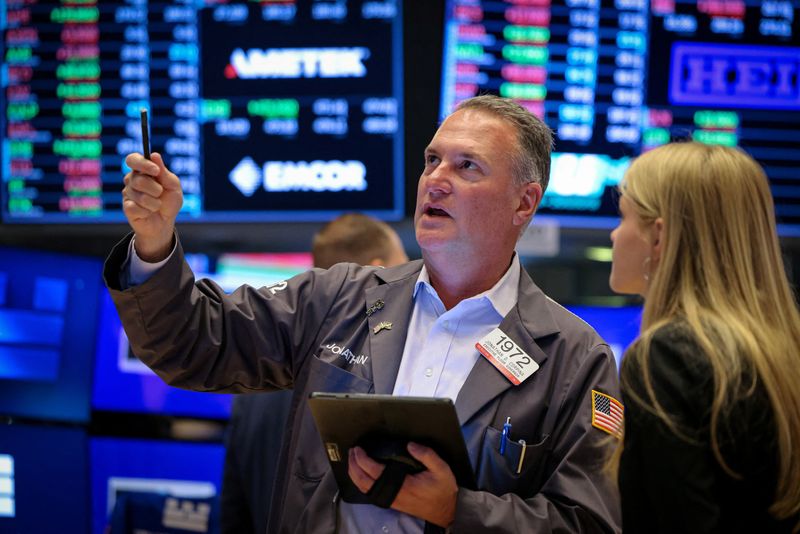
Advanced Micro Devices (NASDAQ:AMD) stock fell 5% Thursday morning after rivals Nvidia (NASDAQ:NVDA) and Intel (NASDAQ:INTC) announced a strategic collaboration to develop AI infrastructure and personal computing products together.
The partnership between AMD’s two major competitors sent ripples through the semiconductor sector, with Intel shares jumping 30% while AMD investors showed concern about potential market share challenges. The collaboration will focus on connecting Nvidia and Intel architectures using Nvidia’s NVLink technology, combining Nvidia’s AI expertise with Intel’s CPU technologies.
Under the agreement, Intel will build custom x86 CPUs for Nvidia’s AI infrastructure platforms. For the personal computing market, Intel will develop x86 system-on-chips that integrate Nvidia RTX GPU chiplets, creating products that directly compete with AMD’s offerings in both the data center and consumer segments.
Nvidia also announced a $5 billion investment in Intel common stock at $23.28 per share, further cementing the partnership between the two tech giants.
The collaboration poses a significant competitive challenge to AMD, which has been gaining ground in both the CPU and GPU markets. AMD has positioned itself as a strong competitor to both Intel in CPUs and Nvidia in GPUs, particularly in AI applications. This new alliance between its two main rivals could potentially squeeze AMD’s market position in both segments.
The partnership announcement comes at a time when competition in AI computing infrastructure has intensified, with AMD working to strengthen its own position in the rapidly growing AI chip market.

